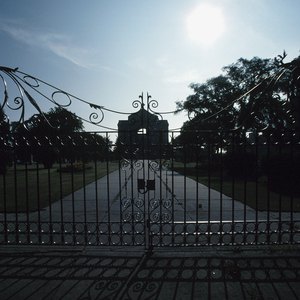
Homebuyers often take, what they consider to be, extra precautions to protect their purchases. As such, some buyers may ponder whether buying homes in gated communities could yield a better return on investment than buying in non-gated subdivisions. While there are restrictions associated with living in a gated community, there are many added benefits, such as additional security and constant property upkeep, which can boost a property's value over time.
Increasingly Popular
More American homes than ever before are located in gated communities with secured access, walls and fences. In 2009, nearly 11 million households, or approximately 10 percent of all U.S. households, were located in gated communities, according to the U.S. Census Bureau's most recent American Household Survey. This compares to 7 million households located in gated communities in 2001.
Safety Measures
A significant benefit of owning property in a gated community is the security measures in place to protect owners and their homes. In addition to the gate or wall surrounding the community, some gated communities provide security guards who monitor the entrance. These extra safety features may add value to the property. Ultimately, however, an area's overall crime statistics may determine whether properties within gated communities hold more value than those in non-gated communities.
Convenience and Luxury
Property owners in gated communities are required to join the homeowner's association, or HOA, even if they don't use the amenities. The fees charged by gated community HOAs can be significantly higher than those changed by non-gated community HOAs. This is especially true if the gated community employs a large staff and offers luxury amenities such as a sports club or golf course. Gated community features and perks can be attractive to potential buyers, thereby increasing an owner's return on investment in certain markets.
Rules and Regulations
To maintain a gated community's standards, owners must follow the community's strict rules, no matter how inconvenient they might seem. Many gated communities require guests and workmen to sign in and out and to show identification. Owners also may face restrictions regarding home renovations and landscaping, which could inspire an owner to sell at a loss, simply to move to a property where he has more freedoms.
References
- The First-Time Homeowner's Handbook; Atlantic Publishing Group, Inc.
- The Wall Street Journal: Should You Buy in a Gated Community?
Writer Bio
Based in Oklahoma, Danielle has been writing for more than a decade. After a six-year career with a commercial real estate company in Nashville, Tenn., she now focuses her writing on real estate. She holds a Bachelor of Arts in journalism from the University of Arkansas.

